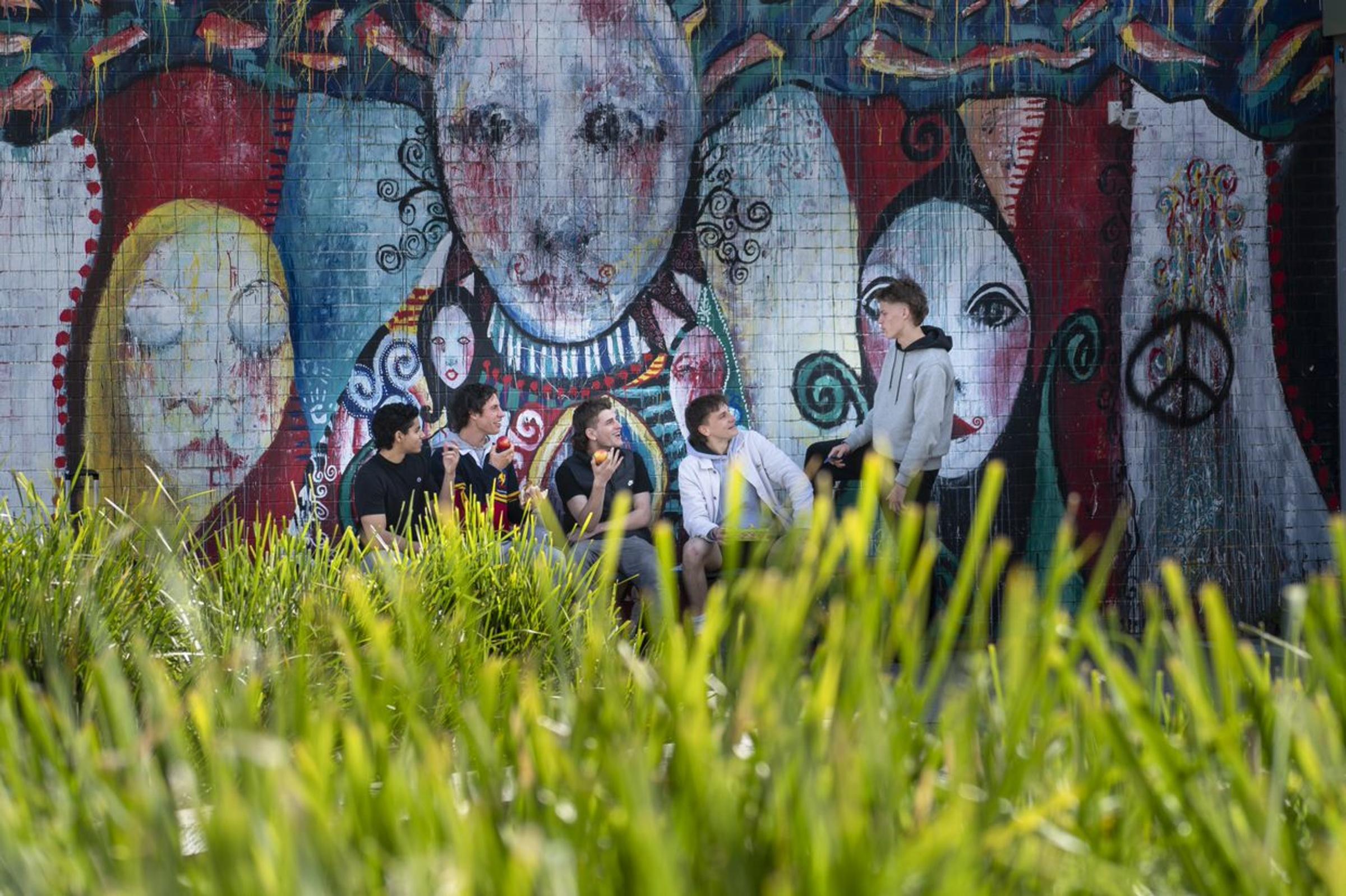Student Welbeing

Digital Wellbeing – What is it and why does it matter?
This week we will focus on the ever-relevant theme that has become increasingly important in secondary schools: Digital Wellbeing. In today's hyper-connected world, where technology plays an integral role in our lives, it's essential to ensure that young people maintain a healthy and balanced relationship with their digital devices.
The importance of Digital Wellbeing:
- Balancing Screen Time: The rise of smartphones and online learning has led to a surge in screen time. While technology can be incredibly beneficial for education and entertainment, it's crucial to strike a balance. Encourage your child to take regular breaks, engage in offline activities, and practice the 20-20-20 rule: every 20 minutes, look at something 20 metres away for at least 20 seconds.
- Social Media and Peer Pressure: Adolescents often feel pressure to fit in, especially on social media platforms. Teach them about the importance of being authentic online, and how likes and follows do not define self-worth. Encourage open conversations about their online experiences and the impact it has on their self-esteem.
- Online Safety: Digital wellbeing also encompasses online safety. Discuss the importance of maintaining privacy, the dangers of sharing personal information, and the importance of reporting any form of online harassment or bullying.
- Sleep Hygiene: The blue light emitted by screens can disrupt sleep patterns. Encourage a technology-free period before bedtime to ensure restful sleep. A good night's sleep is fundamental for their physical and mental health.
Tips from the Student Services team to promote Digital Wellbeing at home:
- Set Boundaries: Establish clear rules about screen time, especially during family meals and before bedtime. Encourage device-free zones in certain areas of your home.
- Model Healthy Behaviour: Be a role model for your young person. Show them that you can disconnect from your devices when necessary and prioritise face-to-face interactions.
- Stay Informed: Stay informed about the apps and websites they are using. Be aware of the content they're exposed to and have conversations about responsible internet use.
- Encourage Physical Activity: Promote physical activities and hobbies that do not involve screens. Help your young person find their passion outside of the digital world.
- Mental Health Support: Let your young person know that it's okay to seek help if they're feeling overwhelmed or stressed by digital pressures. We’re here to provide you and your young person with relevant support.
YoDAA Support Services
YoDAA is Victoria's Youth Drug and Alcohol Advice service. Whether you are a young person or someone concerned like a parent, carer or teacher, YoDAA provides the simplest way to access the information and support you need.
YoDAA can provide:
- Information, tools and advice to professionals around helping young people with Alcohol and other drug related issues.
- Advice, options, support and understanding for young people worried about alcohol and drug use.
- Strategies, advice and acknowledgement for families and carers concerned about a young person's drug use.
- Knowledge, skills and support for school wellbeing staff to assist young people.
How to get support from YoDAA:
YoDAA can offer advice and support to young people, their carers or school wellbeing teachers over the phone on 1800 458 685 from 9:00am - 8:00pm Monday - Friday.
They can also be contacted via email: advice@yodaa.org.au
More information can be found at: <https://vic.us4.list-manage.com/track/click?u=7d2eefdc78b8e3dec7d35a12c&id=a47de80dbb&e=9ca32adc57>
Free Travel Pass for Vulnerable Students
Apply for public transport travel passes for students experiencing crisis.
The Department of Transport and Planning’s Travel Pass program provides 30-day travel passes to schools at no cost.
Schools may issue travel passes to students experiencing a crisis, such as family violence or sudden financial hardship, and are at risk of disengaging from education to ensure they can continue to travel to school by public transport.
Students’ eligibility will be determined through a case-by-case assessment by the school. For government schools, this program is facilitated by State Schools’ Relief.
Travel Passes
The Travel Pass program provides 30-day travel passes free of charge to students in crisis attending primary, secondary, English language and specialist schools.
Travel passes can be used on:
Bus, train and tram trips in metropolitan Melbourne (Zone 1 and 2)
All regional town buses
Public Transport Victoria inter-town buses
V/Line coaches
V/Line trains.
How to apply
Please inform Student Services and we can apply through the State Schools’ Relief online portal.
MADELINE KAMAMIS, Student Services Leader
